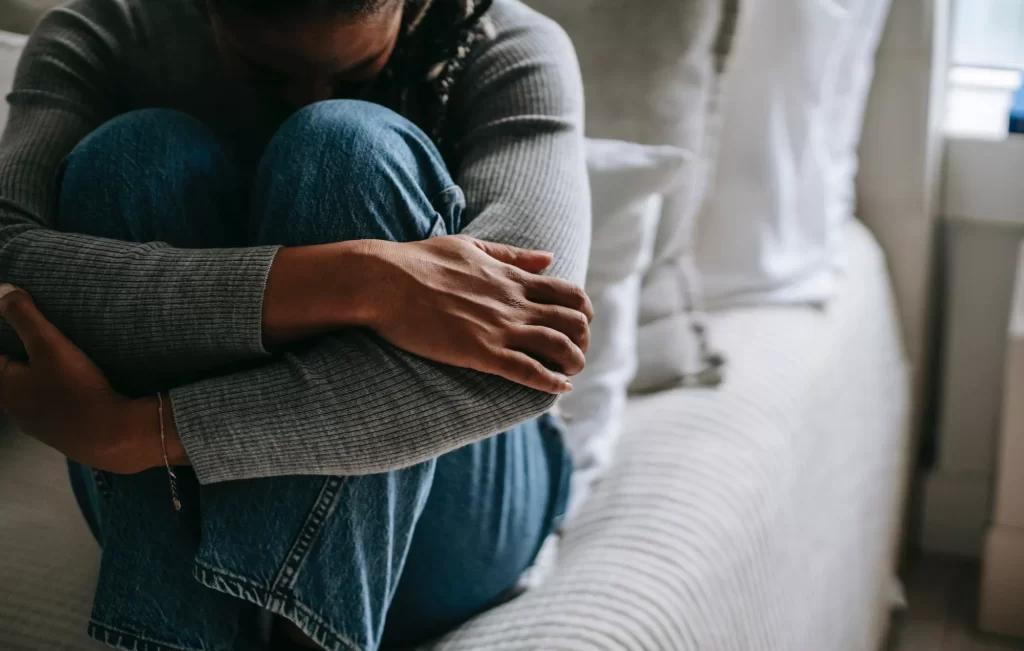What is depression?
Sadness is a normal human emotion that everyone experiences throughout their lives. It passes with time and is nothing to be worried about.
Depression is different — it is a mood disorder that interferes with every aspect of your life and will change how your brain functions. It does not just affect one person, but in fact, can affect everyone who cares about someone suffering from depression as well. Depression can be diagnosed as major depressive disorder or clinical depression.
It is important to remember that depression is a very real condition and is not a sign of weakness or a character flaw. Depression can not be cured in the traditional sense, but relief from symptoms can be found and remission can be achieved.
What are the signs and symptoms of depression?
The normal emotion of sadness only makes up a small facet of depression. In fact, you may have depression and not even experience sadness. There are many other symptoms of depression. If you have any of the following symptoms and have been suffering for at least two weeks, you may be suffering from clinical depression:
- Sadness or “empty” feeling
- Feelings of hopelessness
- Feelings of guilt or worthlessness
- Loss of interest in things you used to enjoy
- Fatigue or lack of energy
- Difficulty concentrating
- Changes in sleep patterns
- Changes in appetite or weight
- Irritability
- Suicidal thoughts or actions
What factors play a role in depression?
Depression is not caused by any one single factor but is instead likely a complicated result of a variety of genetic and environmental factors. Family history of depression or brain chemistry are genetic factors that play a role, but events like childhood trauma, stress, loss of a loved one, or relationship troubles may also contribute.
Depression can affect anyone, regardless of age, gender, or lifestyle, but most often beings in the teens, twenties, or thirties. Most mood disorders in adults actually begin as high levels of anxiety during childhood — high levels of anxiety in children likely mean a higher risk of developing depression as an adult.
Depression may also co-occur with other serious conditions like diabetes, heart disease, cancer, or Parkinson’s disease. Depression may make these conditions worse, and vice versa these conditions can only worsen the symptoms of depression. In some cases, treatments taken for these conditions can cause side effects that also affect depression.
What are the types of depression?
Major Depressive Disorder
Major Depressive Disorder, or Clinical Depression, is the standard version of depression. It brings about symptoms that interfere with all aspects of everyday life, such as personal relationships with friends or family or performance at work or in school.
Some people may only suffer from one depressive episode, but more likely than not, a person will experience at least two depressive episodes throughout their life.
Persistent Depressive Disorder
This is a type of depression that lasts for at least two years at a time. Someone suffering from persistent depressive disorder may still have periods with less severe symptoms, but symptoms must be there regardless of severity for two years to be considered this subset of depression.
Psychotic Depression
This occurs when someone not only has severe depression, but also some type of psychosis. Forms of psychosis include delusions, which are disturbing and false beliefs, or hallucinations, which are either hearing or seeing sometimes upsetting things that are not really there.
Postpartum Depression
Postpartum depression is more than just the “baby blues” — it is a serious mood disorder likely resulting from the hormonal and physical exchanges the body goes through during and after childbirth. Some studies estimate that as many as fifteen percent of women suffer from postpartum depression after childbirth.
Seasonal Affective Disorder (SAD)
Seasonal affective disorder is a form of depression that generally comes about during the winter months, possibly due to a lack of natural sunlight. This usually lifts during the spring and summer months. Around half of those suffering from SAD may find relief from light therapy, but many will need other forms of treatment in addition to light therapy.
Dating someone with depression
Dating someone who suffers from depression can be challenging. It is hard to watch someone you love suffer and not know what to do. If your loved one struggles with depression, he or she might feel hopeless or withdraw socially, which can make you feel guilty if you try to reach out to him or her. Learning how to understand depression can help you talk to your partner when his or her symptoms manifest. By developing new communication skills, you can build stronger relationships and connect with each other, even when your loved one is depressed. You can learn how others cope with depression and how to support your partner.
Ketamine infusions
An innovative new treatment option, Ketamine is an FDA-approved anesthetic that has been found to provide rapid relief from depression and anxiety when infused at a low dose. The FDA has recently approved Esketamine, a nasal spray comprised of a compound based on Ketamine, for the treatment of depression and other mood disorders. Research indicates that Ketamine stimulates the regrowth of synapses within the brain, essentially rewiring the parts of the brain that may be causing distress.
Ketamine is also available as an infusion. Some researchers maintain a 75% success rate when treating those suffering from depression or anxiety with Ketamine Infusions. Another active area of study is the role that the experiential aspect of ketamine plays in the treatment of depression and PTSD. Many clinicians feel that the ego disruption that occurs with the changes in perception that ketamine infusions create can be very beneficial in changing the paradigm with which patients view the world. This paradigm shift can be advantageous for patients.





